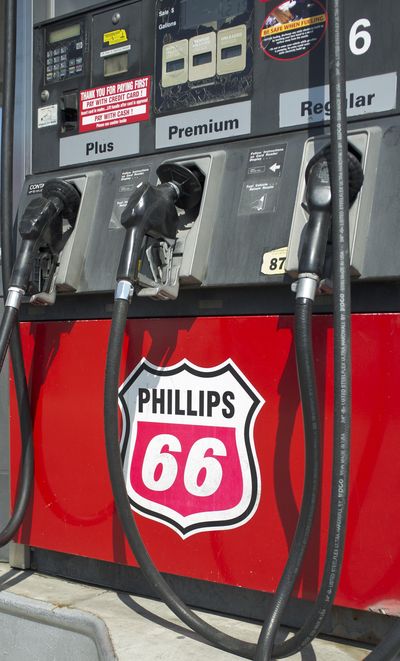Motley Fool: Its non-refining interests make Phillips 66 worth a look

Phillips 66 (NYSE: PSX) is one of the larger independent refining companies in the country. Its non-refining businesses of chemicals, midstream, and marketing and specialties have kept it in the green during the refining sector’s recent challenges, and those segments hold the company’s most compelling growth prospects.
Phillips 66 owns stakes in 11 refineries around the U.S. and two in Europe. Its empire includes a large integrated midstream network, with both crude oil and refined product pipelines and terminals as well as several natural-gas-liquids-related assets. The company’s marketing and specialties segment distributes gas and diesel in the U.S. and Europe to more than 8,750 branded outlets, while also controlling the largest aviation fuel network in this country.
Additionally, Phillips 66 also manufactures and markets specialty products. It’s one of the biggest finished lubricant suppliers in the country, and it shares ownership with Chevron in CPChem, a massive chemicals company and the world’s largest producer of polyethylene.
Since going public as a stand-alone company in 2012, Phillips 66 has invested tens of billions of dollars in growth projects in its petrochemicals and midstream segments, repurchased 17 percent of shares outstanding and increased its dividend by 215 percent. Its recent yield near 3.7 percent is attractive, and further dividend growth could deliver bigger returns over time. Take a closer look at it. (The Motley Fool has recommended Chevron.)
Ask the Fool
Is it good to see a lot of cash on a company’s balance sheet? – N.R., Tacoma
Not necessarily. Having gobs of cash does allow a company to act quickly when opportunities arise, but if the money is sitting around for a long time, it’s not being put to productive use. Many successful companies keep their cash levels low on purpose. They use profits to pay dividends, buy back shares, pay off debts, hire more workers and lots of other things. If they suddenly need more cash, they can borrow it.
As an example, ExxonMobil rakes in more than $240 billion in revenue annually, but it recently had just $5 billion in cash (and cash equivalents – assets that can be readily turned into cash) on its balance sheet.
Amazon.com, meanwhile, recently had $143 billion in annual revenue and about $15 billion in cash and equivalents. Companies manage their cash in different ways.
Q: How should I invest my money if I want it to grow as quickly as possible for a down payment on a house in a few years? – H.L., Hickory, North Carolina
A: The stock market is a great place to build long-term wealth, with stocks outperforming bonds and other alternatives over most long-term periods. But the stock market is volatile. Over the short term, it can go up or down, jeopardizing the down payment you’ve accumulated and plan to withdraw soon.
Don’t risk money you’ll need within five years (or even seven or 10, if you’re very risk-averse) in stocks. Short-term funds should be kept in a safer place, such as CDs or money market accounts, to protect your principal. You can find good short-term interest rates at bankrate.com.
My dumbest investment
My dumbest investment was buying into a penny stock. I bought 100 shares for $3.10 each, and I sold them the next day for $1.87 apiece. Today, the stock is worth $0.25 per share. The stock is not one to invest in, right now. The company keeps adding more shares all the time.
I learned not to invest in companies without current financial statements available and companies with the letter E added to their ticker symbol. My 401(k) is all in individual stocks and junk bonds. – M.T.R., online
The Fool responds: Penny stocks – ones trading for less than about $5 per share – are notoriously volatile and risky. (Junk bonds are risky, too, by the way, which is why they offer higher interest rates to investors.)
When you see a stock trading on the Nasdaq Stock Market or the Over-the-Counter Bulletin Board with an E added to its ticker symbol, that means it has been late filing required documents with the Securities and Exchange Commission.
The E is now gone from its ticker, but the stock you bought has been trading near $0.02 per share. The company was once flying high on expectations that it would supply parts to iPhones, but it has posted no profits in recent years. Its share count went from 45 million a decade ago to more than 700 million recently, reflecting much fundraising at the expense of existing shareholders.